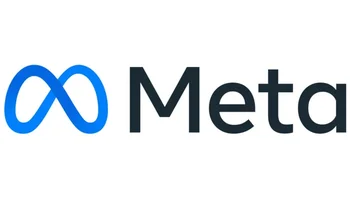Meta's translation AI now supports 200 languages and will help nonprofits

For some people, Meta is probably the company that constantly spies on us and then sells our personal data to advertisers. However, Meta's latest accomplishment indicates that it may not be that corrupted by the dark side of the Force and is probably more of a gray Jedi than a full-blown evil Sith.
In a new blog post, Meta announced that its latest AI model used to translate content on Instagram, Facebook, and the other company technologies can now translate 200 languages. Furthermore, according to Meta, the new model, named NLLB-200, improves translation quality by an average of 44%. For some African and Indian-based languages, this percentage even goes over 70%.
Also, in addition to the new AI model, Meta has built a dataset called FLORES-200, which will enable researchers to evaluate the NLLB-200. As the company stated, the new dataset will help researchers assess the AI model's performance in 40,000 different language directions and "confirm that the translations are high quality."
However, Meta goes even further than that. It is opening its NLLB-200 model and the FLORES-200 dataset to other developers and is sharing its AI model training and dataset codes with them. Also, Meta has decided to reach into its pocket and award researchers and nonprofit organizations who use NLLB-200 for initiatives that support the UN Sustainable Development Goals like sustainability, food security, gender equality, and education. The award: up to $200,000 in grants.
However, since these days, the company's main goal is the metaverse, NLLB can also be used to "build technologies that work well in a wider range of languages," thus giving more people access to "immersive experiences in virtual worlds."
In a new blog post, Meta announced that its latest AI model used to translate content on Instagram, Facebook, and the other company technologies can now translate 200 languages. Furthermore, according to Meta, the new model, named NLLB-200, improves translation quality by an average of 44%. For some African and Indian-based languages, this percentage even goes over 70%.
However, Meta goes even further than that. It is opening its NLLB-200 model and the FLORES-200 dataset to other developers and is sharing its AI model training and dataset codes with them. Also, Meta has decided to reach into its pocket and award researchers and nonprofit organizations who use NLLB-200 for initiatives that support the UN Sustainable Development Goals like sustainability, food security, gender equality, and education. The award: up to $200,000 in grants.
NLLB-200 is part of Meta's No Language Left Behind (NLLB) system. Its purpose is to enable more and more people to "read content in their preferred language rather than always requiring an intermediary language that often gets the sentiment or content wrong." According to Meta, NLLB can help in the advancement of other technologies like voice assistants.
However, since these days, the company's main goal is the metaverse, NLLB can also be used to "build technologies that work well in a wider range of languages," thus giving more people access to "immersive experiences in virtual worlds."










Things that are NOT allowed: